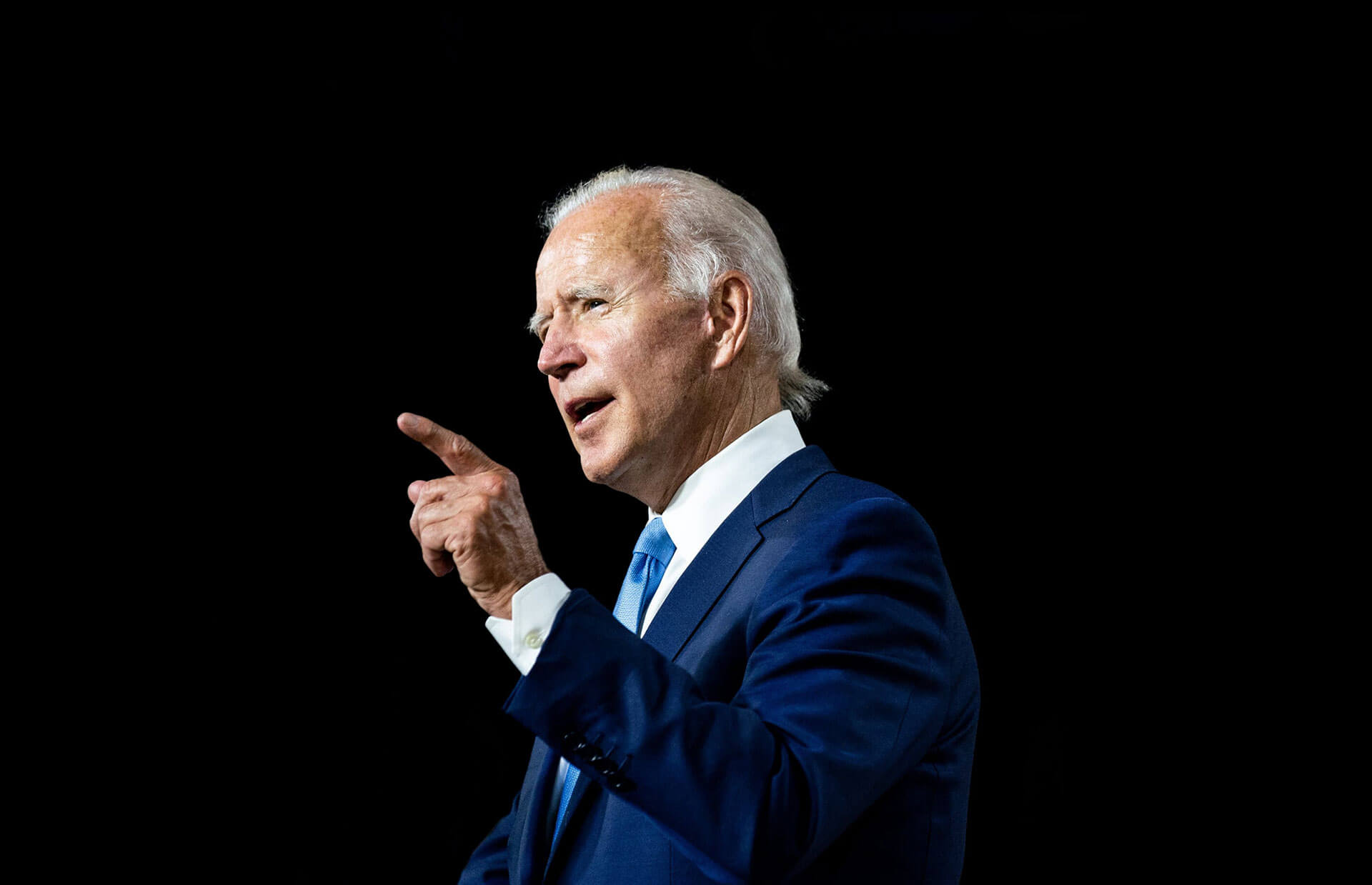Secretary of State Antony Blinken’s trip to Beijing is a ripple on the tide of President Joe Biden’s decisions not to promote dialogue or expert understanding. It has not interrupted the push toward war.
Breakdown of the US’s ability to talk to and think about China
Under Presidents George W Bush, Barack Obama and, partly, Donald Trump, the US had institutionalized large-scale communications with China, especially through the strategic economic dialogue (Bush), strategic and economic dialogue (Obama), and comprehensive economic dialogue (Trump). Dozens of senior officials regularly met. Those dialogues could not resolve the great issues like Taiwan or intellectual property, but officials came to understand each other and render differences manageable.
When Donald Trump became President, Xi Jinping was determined to keep communications open and relations constructive. Chinese scholars say the lavish welcome Trump was given was historically exceptional.
As with other relationships, Trump responded initially with admiration: “President Xi is a brilliant man. If you went all over Hollywood to look for somebody to play the role of President Xi, you couldn’t find it. There’s nobody like that. The look, the brain, the whole thing.” Likewise, at Davos in 2020: “Our relationship with China has now probably never, ever been better … He’s for China, I’m for the US but, other than that, we love each other.” But Trump’s mood changed and the dialogue lapsed. Biden chose to permanently abandon institutionalized dialogue permanently. Blinken’s trip marginally walks back that decision and marginally walks back the coldness Blinken deliberately instilled at his initial meeting with the Chinese in Anchorage.
US Presidents traditionally ensure the presence of some cabinet-level officials with expertise and experience on the most vital national security issue of the time, once the Soviet Union and now China. No Cold War president would have been without the top-level expertise brought to the task by a Kissinger, Brzezinski or Scowcroft.
George W. Bush was a foreign policy failure in many respects but, guided by Hank Paulsen in the Treasury and brilliant CIA China expert Dennis Wilder in the National Security Council (NSC), he balanced his strong support for Taiwan’s security with strong support for the 1970s peace agreements and ended up admired by both Taipei and Beijing.
Obama ended the tradition of having cabinet-level China expertise. Trump followed suit. Biden has been exceptionally striking in declaring that China is America’s ultimate foreign policy threat but hiring no top-level expertise on China. His Secretary of State, National Security Advisor and CIA Director spent their careers on the Middle East and Europe; his Secretary of Defense on the Middle East. Even Biden’s ambassador to China is a career Middle East and Europe official. His NSC Asia czar has no direct experience with China and became famous for demanding disengagement based on the false assertion that US engagement with China presumed engagement would democratize China.
Some of these officials, like CIA Director William J Burns, are outstanding and have deployed their European expertise to resist Russian aggression. Regarding China, though, it is another story. Imagine the CEO of a giant food company announcing that cereals constitute the greatest opportunity and the greatest competitive threat, then announcing that the heads of the Wheaties division, the Cheerios division, the oatmeal division and all others would be hamburger experts.
Below the leadership level, things are even worse. Intelligence and Defense Department officials say that it has become so difficult for anyone with China expertise and experience to get security clearance that the US has partially blinded itself. Scholars and business executives who bridge the two countries are frightened, and vast numbers are considering departure to China. Some visiting Chinese professors, including two of the most pro-American international relations scholars and one invited personally by Jimmy Carter, have been treated very badly by US immigration authorities.
In short, Biden has continued and worsened the Trump disjunction between strategic imperatives and leadership skills, the Trump contempt for expertise and the Trump (late, partial, possibly temporary) dismissal of institutionalized dialogue. No weekend trip can ameliorate these fundamental realities.
The US fumes against China because it no longer understands it
Magnifying the consequences is a vital difference between Trump and Biden. Trump always sought the deal, albeit a misconceived deal: The trade war was about trade disparities, and if Beijing took specific actions, the trade war would proportionately ease. Biden proposes no deal, just escalated sanctions.
Given the overwhelming evidence that steel and aluminum tariffs hurt the US more than China, raise prices and cost many tens of thousands of US jobs, most economists assumed that the President whose slogan is “a foreign policy for the middle class” would lift them. But, no: US Trade Representative Katherine Tai says they are necessary to maintain “leverage” over China. There is of course no leverage from policies that damage America more than China.
The Biden administration has totally repudiated the peace compromise so successfully negotiated by Kissinger and Brzezinski.
Lacking expertise, Washington frequently seems clueless about how the world views its China policies. For instance, Blinken and Biden often broadcast versions of Biden’s June 9 statement that China’s Belt and Road Initiative is a “debt and confiscation program.” Trump’s Secretary of State Mike Pompeo characterized Belt & Road similarly. Developing world leaders, who frequently contrast China’s development offers with Washington’s lectures or its omnipresent Special Forces teams, know that is false. Every China specialist knows the study of 1100 Chinese loans that found there was not a single instance of China using debt problems to seize collateral.
Does the US President have no idea what he is talking about, or is he systematically spreading disinformation? Either way, developing countries can dismiss much of US policy. For instance, many give credence to the argument that the problem in both Europe and Asia is US efforts to encircle and destabilize its adversaries. Hence, all of Latin America, Africa and the Middle East align with China regarding US sanctions on Russia.
The big problem is Taiwan. Henry Kissinger warns that we are sliding toward war over Taiwan. The Biden administration has totally repudiated the peace compromise so successfully negotiated by Kissinger and Brzezinski. Washington promised to abstain from official relations or an alliance with Taiwan. But President Biden has promised four times to defend Taiwan; that is an alliance.
Speaker Pelosi was emphatic that her August trip to Taipei was an “official” trip; immediately after her meeting with President Tsai, the presidential spokeswoman went on island-wide TV and proclaimed, “We are a sovereign and independent country.”
Responding to lesser provocations, George W Bush, his secretary of state, and his deputy secretary of state, no panda-hugging liberals, distanced the US and warned Taipei to stop. Instead, Secretary Blinken continues to welcome such official relations and tell the Chinese not to “overreact.”
The angry popular reaction inside China to Xi’s failure to respond decisively to such US initiatives is the one risk that could topple Xi Jinping from power. Concern about that is the one thing that could trigger him to launch a direct attack on Taiwan.
Biden has no senior advisor who understands such things. Blinken and Sullivan act on how they believe theoretically China should react, not on knowledge of actual Chinese politics.
If war comes, it will not be the limited conflict of US war games. China will hit Okinawa immediately or lose. The US will hit mainland Chinese bases immediately or lose. China will respond against the US.
The common denominator of Trump’s MAGA policies, Biden’s MAGA-plus policies, and Representative Mike Gallagher’s ultra-MAGA policies is a repudiation of the promises and norms the US accepted when Nixon, Carter, Mao and Deng compromised to eliminate what had been a terrible risk of conflict over Taiwan.
The cover for that repudiation is an endless repetition of the assertion that China is planning an invasion of Taiwan, an assertion for which the US intelligence community says there is no evidence.
The fact of the matter is that Washington’s hard left and the hard right always despised compromise. The pragmatic center has evaporated, for domestic reasons, and the self-righteous ideologues rule Congress. No quick visit, no fog of diplomatic niceties will arrest the resultant reversion to the pre-1972 risk of war.
(China took an equally dangerous turn, also for domestic reasons. Hong Kong, Xinjiang, Canadian hostages, economic war on Australia, and much else are serious issues. But this article is about the US; previous US administrations handled middle-sized issues without sliding toward war.)
Biden was elected by the pragmatic center, but he has no China team, no China policy, no strategic vision. He should be wary of taking even a small risk that history will remember him for the first inadvertent world war of choice. Weekend trips for marginal changes of tone do not address the problem.
[Asia Times first published this piece.]
[Anton Schauble edited this piece.]
The views expressed in this article are the author’s own and do not necessarily reflect Fair Observer’s editorial policy.
Support Fair Observer
We rely on your support for our independence, diversity and quality.
For more than 10 years, Fair Observer has been free, fair and independent. No billionaire owns us, no advertisers control us. We are a reader-supported nonprofit. Unlike many other publications, we keep our content free for readers regardless of where they live or whether they can afford to pay. We have no paywalls and no ads.
In the post-truth era of fake news, echo chambers and filter bubbles, we publish a plurality of perspectives from around the world. Anyone can publish with us, but everyone goes through a rigorous editorial process. So, you get fact-checked, well-reasoned content instead of noise.
We publish 2,500+ voices from 90+ countries. We also conduct education and training programs
on subjects ranging from digital media and journalism to writing and critical thinking. This
doesn’t come cheap. Servers, editors, trainers and web developers cost
money.
Please consider supporting us on a regular basis as a recurring donor or a
sustaining member.
Will you support FO’s journalism?
We rely on your support for our independence, diversity and quality.







Comment